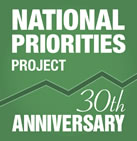Extending the idea of what's possible -
a rebuttal to Margaret Thatcher's "There is no alternative".
As the tag line on this blog of nearly two and a half years and 170 posts later maintains, There Are Alternatives to the dominant paradigm. Our political, economic, education, and social systems are human designed and can be altered by us. History gives us plenty of evidence to back that up. Sometimes, we're forced out of necessity to change, sometimes it's by choice. Often it's a combination of some of both.
This blog has tried to share "possibilities". I am not of the belief that income inequality has to be at the extreme level it has risen to. I am not of the belief that we can't slow our destruction of the ecological systems that provide us life. I am not of the belief that we have to have war and killing forever. If the abolitionists, suffragists, environmentalists, civil right and gay and lesbian activists had bought into Maggie Thatcher's dictum we'd be living in a different and worse world.
Having played in the sandbox of sustainability for two decades I've come to realize that the dominant paradigm and Bill Clinton have it all backwards - It's not the economy stupid. Rather the economy is the wholly-owned subsidiary of the environment and is further a subset of society, not the other way around. Yet our dominant paradigm focuses on the economy (through the narrowest monetary lens) as if everything else will just fall in line if we fix the economy via free-market nostrums. How many times today might you heard or read of the stock market's inching up or down?
| From Achieving Sustainability: Visions, Principles and Practices. (Gale/Cengage, 2013) |
Towards a New Social Settlement was just released last month. While focusing most closely with the UK the authors think the principles and direction can be applied to any community, state or nation. This 64 page report lays out the following possibilities (taken from summary).
The new social settlement has three goals: social justice, environmental sustainability, and a more equal distribution of power. All three are intertwined and must be pursued together. They tackle severe contemporary problems: widening social inequalities, accelerating threats to the natural environment, and accumulations of power by wealthy elites.
These goals lead to a set of objectives, which highlight crucial issues too often ignored in mainstream debate. Like the goals, they too are linked together and can be mutually reinforcing:
- Plan for prosperity without depending on economic growth.
- Shift investment and action upstream to prevent harm instead of just coping with the consequences.
- Value and strengthen the core economy of unpaid work, everyday wisdom and social connections on which all our lives depend.
- Foster solidarity, understanding just how much we depend on each other to achieve our goals.

We challenge the dominant view that the key to progress is to deregulate markets, promote choice and competition, and boost consumption. We offer a different set of ideas that promotes well being for all within the limits of the natural environment, as well more inclusive and collaborative ways of making decisions and working together. We aim to meet today’s needs without compromising the ability of future generations to meet their own needs.
The proposals are focused around four key areas:
- Rebalance work and time
- Release human resources
- Strengthen social security
- Plan for a sustainable future
Paralleling this, almost as if it had read the report, is the new People's Budget, released this week by the 70 member Progressive Caucus of the U.S. Congress. You likely will not hear about the proposals in this budget. Much more media time and space will be given to President Obama's budget or the House Republican's budget. While there is much I admire and much that aligns well with the report from New Economics Foundation report noted above, it has a long way to go to get seriously considered without a lot of pressure from citizens on their elected leaders.

For a review of this budget check out the Center for Effective Government brief summary and analysis. They promise to do a side-by side comparison of the various budget proposals in the coming weeks.

You can see the National Priorities Project analysis of the various budget proposals here.
You can see the Economic Policy Institute's analysis of the budget here.
To read Senator Bernie Sanders critique of the House Republican Budget see here.
There are possibilities, but one has to nourish them if you expect them to survive and thrive.
 This work is licensed under a Creative Commons Attribution-NonCommercial-ShareAlike 4.0 International License.
This work is licensed under a Creative Commons Attribution-NonCommercial-ShareAlike 4.0 International License.

No comments:
Post a Comment